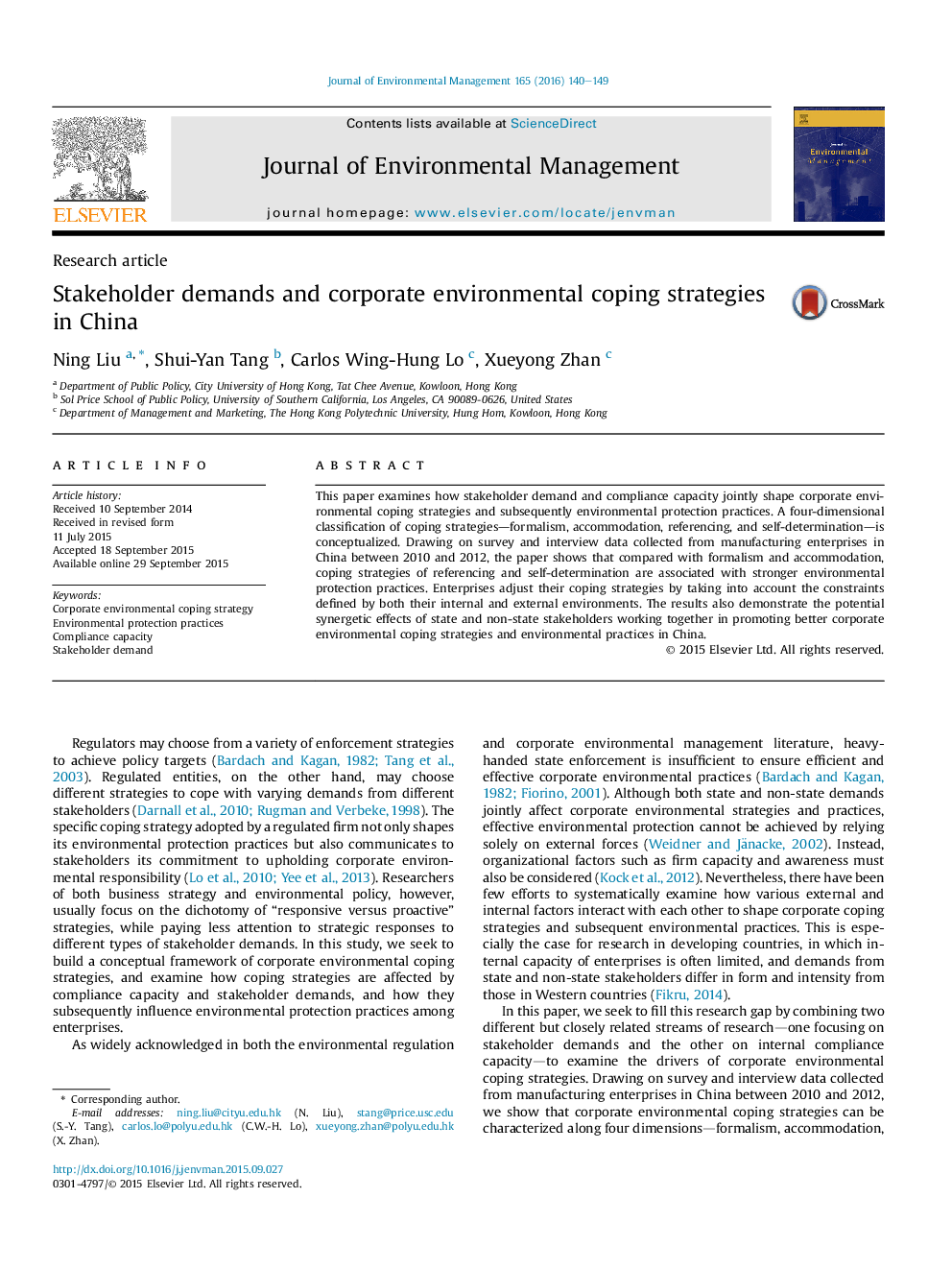| Article ID | Journal | Published Year | Pages | File Type |
|---|---|---|---|---|
| 1055483 | Journal of Environmental Management | 2016 | 10 Pages |
•We develop a conceptual framework of corporate environmental coping strategies.•Firms favor formalism and accommodation over referencing and self-determination.•Referencing and self-determination are associated with better practices.•Internal capacity and external demands co-shape coping strategies.•Synergetic effects of state and non-state stakeholder demands promote better practices.
This paper examines how stakeholder demand and compliance capacity jointly shape corporate environmental coping strategies and subsequently environmental protection practices. A four-dimensional classification of coping strategies—formalism, accommodation, referencing, and self-determination—is conceptualized. Drawing on survey and interview data collected from manufacturing enterprises in China between 2010 and 2012, the paper shows that compared with formalism and accommodation, coping strategies of referencing and self-determination are associated with stronger environmental protection practices. Enterprises adjust their coping strategies by taking into account the constraints defined by both their internal and external environments. The results also demonstrate the potential synergetic effects of state and non-state stakeholders working together in promoting better corporate environmental coping strategies and environmental practices in China.
